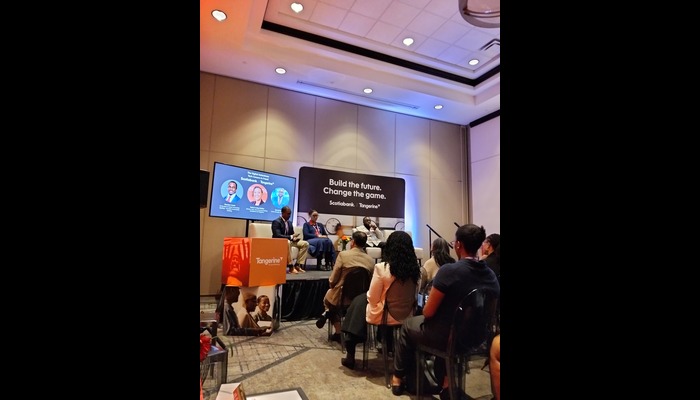Canada: Black professionals discuss how to break into Anti-Money Laundering in banking sector
A group of Canada-based black professionals recently converged at a summit in Toronto to discuss how to break into a career in Anti-Money Laundering (AML) and financial fraud prevention in the banking sector.
The summit, titled Bfuture 2025, was hosted Obsidi, a platform for the Black Professionals in Tech Network (BPTN), and had a panel session, titled: Digital Detectives: Tech Careers in Fraud and Anti-Money Laundering (AML).
The panelists also shared personal stories that underscored the diverse and often unexpected paths into AML and fraud prevention, emphasising that the foundation of success lies in human skills such as empathy, curiosity, and cultural awareness to protect clients, build trust, and adapt to the ever-evolving financial crime landscape.
AML jobs involve roles like analysts, investigators and compliance officers, who work to prevent financial crimes. Professionals in these positions monitor transactions, investigate suspicious activities, ensure regulatory compliance, and report potential threats to authorities. These roles are found in financial institutions, banks, and consulting firms and can be permanent or contract-based.
Damian Jones, vice-president & head of global transactions banking at Canadian Commercial bank; Tsahai Irving-Walker, director of AML for retail and business banking at Scotiabank and Tangerine; and Denrek Lewis, senior manager of inbound fraud at Scotiabank, examined the evolving financial crime landscape, the impact of artificial intelligence (AI) and the human skills essential for success in this demanding field, whilst sharing their foray into AML.
Human Skills: The core pillars of AML professionals
While technology plays a critical role in AML, the panelists emphasised that success depends equally on interpersonal and analytical skills.
Lewis highlighted empathy, culture, and curiosity as the required interpersonal skills needed for a successful career in AML.
“Empathy is paramount,” he said, “particularly when dealing with folks that are being evicted or falling victim to fraud. If we empathise and look at strategies from the consumer’s end, we can better serve and protect our clients.”
Irving-Walker reinforced the importance of curiosity point. She said, “AML is a lot about investigating. It requires professionals to dig deeper, look at patterns, and think critically.”Another is decision-making. “You can’t get stuck in analysis paralysis. In AML, you must make decisions even if you don’t have all the information.”
Lewis introduce d the concept of “fast trust”, explaining: “We need to move faster, but we must do so with trust. The aim is to create precise rules that don’t overblock and make clients hesitant to use their card.”
From HR to AML Leadership
Irving-Walker shared her career journey which started in Jamaica, working in both back-office and front-line banking roles. Despite holding a Master’s degree in human resources, her career pivoted towards technology during her time in group operations and technology. After moving to Canada, she joined Scotiabank in regulatory affairs before unexpectedly being tasked with leading AML implementation.
“AML is never boring,” she said. “It’s a crucial factor for someone who doesn’t like a job that’s repetitive. With global events and the rise of AI, the AML space is becoming increasingly exciting. To succeed, you need natural curiosity and the agility to respond to complexity.”
Building purpose through people
Lewis’s career began outside finance, with early pursuits in auto-mechanics and accounting. His passion for people emerged in a telecommunications call centre, where mentorship from his first manager inspired him to pursue leadership.
“I made the decision I wanted to be a manager,” he recalled. “If I could give back what I received, that’s all I wanted.”
Joining Scotiabank in 2016, Lewis initially worked in collections before curiosity led him to fraud prevention, a field where he thrived despite limited experience. “We need to empathise. When we’re creating strategies, look at it from the consumer’s end.”
Today, he leads a team of 200 employees, instilling the values of empathy, culture, and curiosity to prepare the next generation of financial crime fighters.
Current and future trends in financial crime
The panelists also addressed the shifting threat landscape and the future of AML:
Scams on the rise: “Scams are the talk of the town. Client education is the core of what we do day to day, and the need for education is only going to increase”, Irving-Walker noted.
Predictive analytics: She also pointed to the growing role of AI and data science, nothing, “The future of AML is predictive. We need to predict what will happen before it does. That way, AML teams can move from being compliance officers to partners with the business and strategy.”
Collaboration across disciplines: The panellists agreed that greater collaboration between AML, fraud, and cyber security teams will be essential to meet future challenges.

